There are a lot of opinions on how to store sourdough bread. While no one way is necessarily the right way, there are certain things you can do to ensure your bread stays fresh longer. So, I rounded up 7 of my favorite ways to store sourdough bread for ultimate freshness.
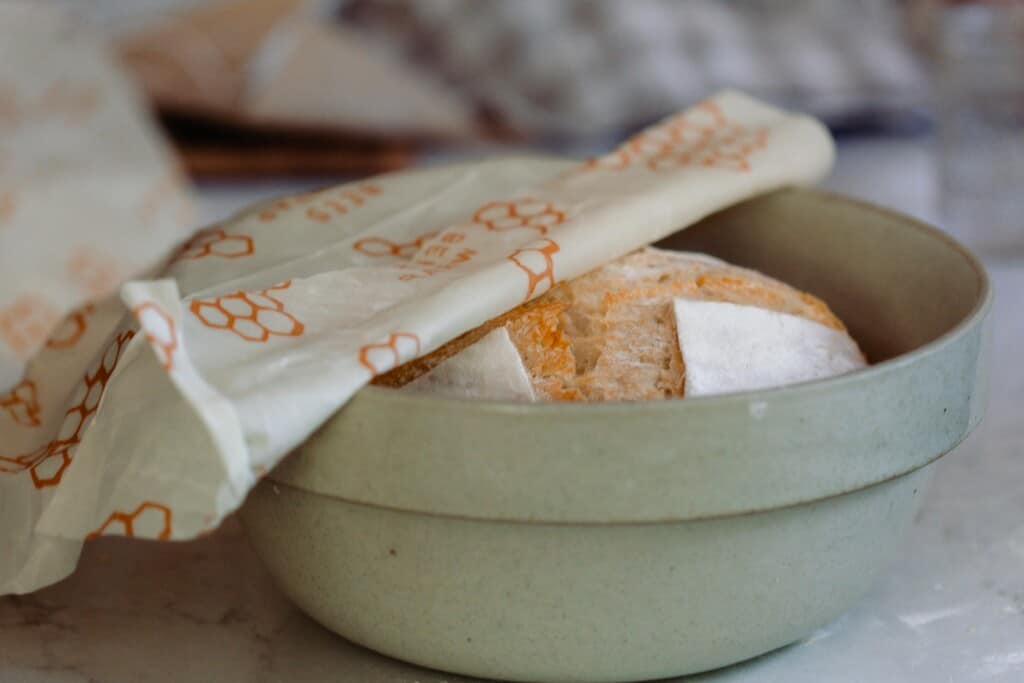
You make a beautiful loaf of fresh sourdough bread to enjoy with your family and it comes out perfect.
After slicing into it and enjoying delicious fresh bread, you think to yourself, “wait, how do I store this?!”
This is a common question I get when it comes to sourdough. That and “how long will my loaf actually last?”
Now, in our house, with a family of 10, it takes no time for us to get through a sourdough boule or sandwich loaf. So, this is not something I have to worry about much these days.
But for those with smaller households or who like to enjoy their bread sparingly, it’s important to know the proper storage techniques to avoid wasting any of your hard work.
Everyone will have their opinion, and you may want to experiment to see what storage method works best for you and your environment. Yes, where you live can play a factor in this!
So, today, I thought I’d share some of my favorite storage techniques and a little science behind keeping your bread fresh.
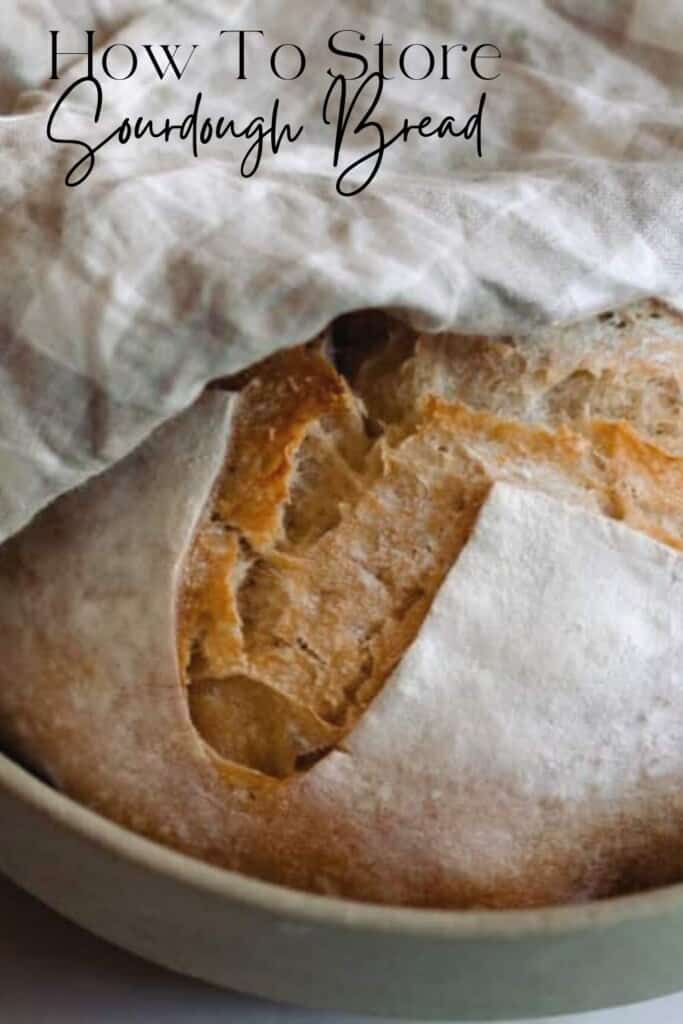
How long does sourdough bread last?
You’ll find that homemade bread is not going to have the shelf life of store-bought bread.
This is because your homemade bread is not packed with preservatives – which is one of the many reasons I prefer making my own.
What is extra special about sourdough bread, though, is that it will typically last longer than bread made with commercial yeast.
That is thanks to a good bacteria called lactic acid. Our bodies actually produce lactic acid when breaking down carbs. (Source) It can also be found in sourdough starter. (Source)
Lactic acid lowers the pH level in our bread. This is good for preservation because it helps prevent food borne pathogens from growing. (Source) Hence, keeping your sourdough loaf edible for longer!
This natural preservation capability of sourdough combined with proper storage means your bread can stay good for an average of about 5 to 7 days. However, it will stay the freshest around 3 days. So, the sooner you can use it up the better!
This post contains affiliate links, which means I make a small commission at no extra cost to you. See my full disclosure here.
To refrigerate or not to refrigerate your sourdough bread
You may have heard sourdough connoisseurs saying how important it is to keep your sourdough bread out of the fridge. There is a good reason for that!
Refrigerators tend to be drier because the cold air does not hold as much moisture. This helps many foods last longer because it keeps things from molding too quickly.
For bread, however, it can actually dry it out a lot faster than if it is just kept at room temperature.
So, yes, keeping your bread in the fridge will not make your bread last longer. It will actually do the opposite and shorten the shelf life instead.
Tips to Keep Your Bread Fresh
- Let your bread cool completely before you slice into it or store it. If it is not cooled all the way, you could end up with excess moisture, especially if stored in plastic.
- No matter how you choose to store your sourdough, make sure to keep an eye on temperature. Your bread should be stored in a cool dry place, around 60 to 70°F.
- Your environment can also play a role in your bread. If you live somewhere that is really dry, you may find your bread dries out faster. If you live in a high-humidity area, you may notice mold forming quicker.
- How you choose to store your bread will largely be determined by the types of bread you are making. More on that below!
7 Ways to Store your Sourdough Bread for Ultimate Freshness
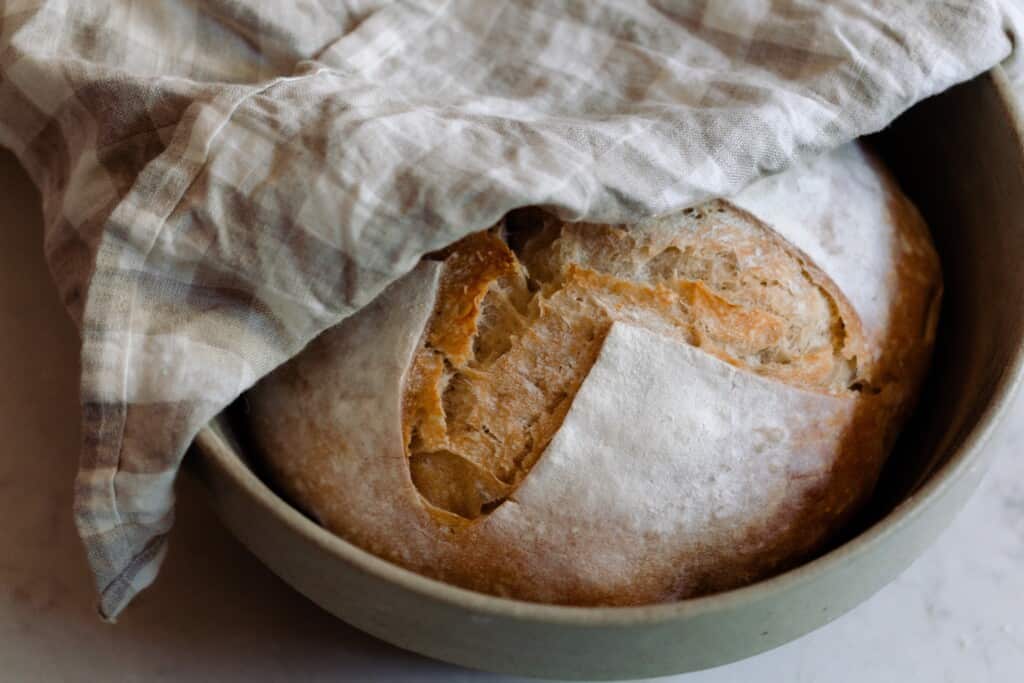
Since we go through our sourdough loaves fairly quickly, I can sometimes get away with simply leaving out a boule on a cutting board and covering it with a tea towel.
If you do this, make sure to place the bread cut side down on the board to keep it from drying out.
There are other ways to store your bread to keep it fresh for longer periods, though.
Beeswax wraps
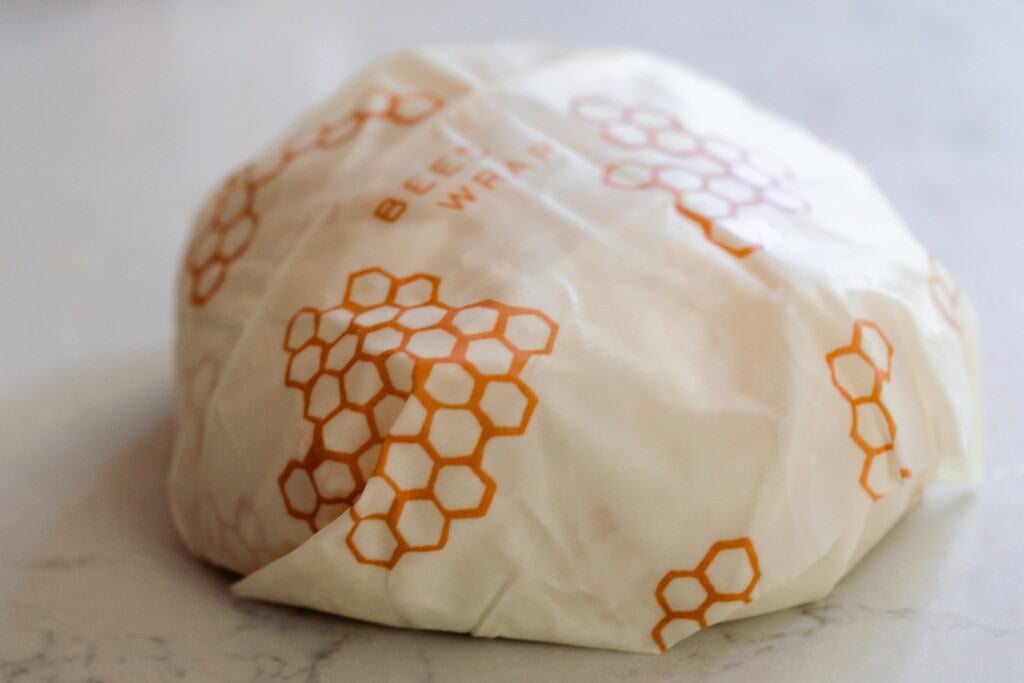
I love beeswax wraps. You can use them to store a variety of food items, and they are good option for bread, too. Plus, you can actually make them yourself with just a few ingredients and tools.
Learn how to make your own beeswax wraps here. These make great Christmas gifts!
Once your bread has cooled, you can wrap it in a beeswax wrap to retain freshness and moisture. You can also place your boule in a bowl and cover and seal with the beeswax wrap.
Pros: Beeswax wraps are one of the most environmentally friendly options. They are natural, easy to clean, and reusable. These wraps adjust to whatever loaf you are storing to make sure it is nicely covered and protected.
Cons: Honestly, it was hard to find a con with these wraps. Most people seem to have great success with this method!
Linen bread bag
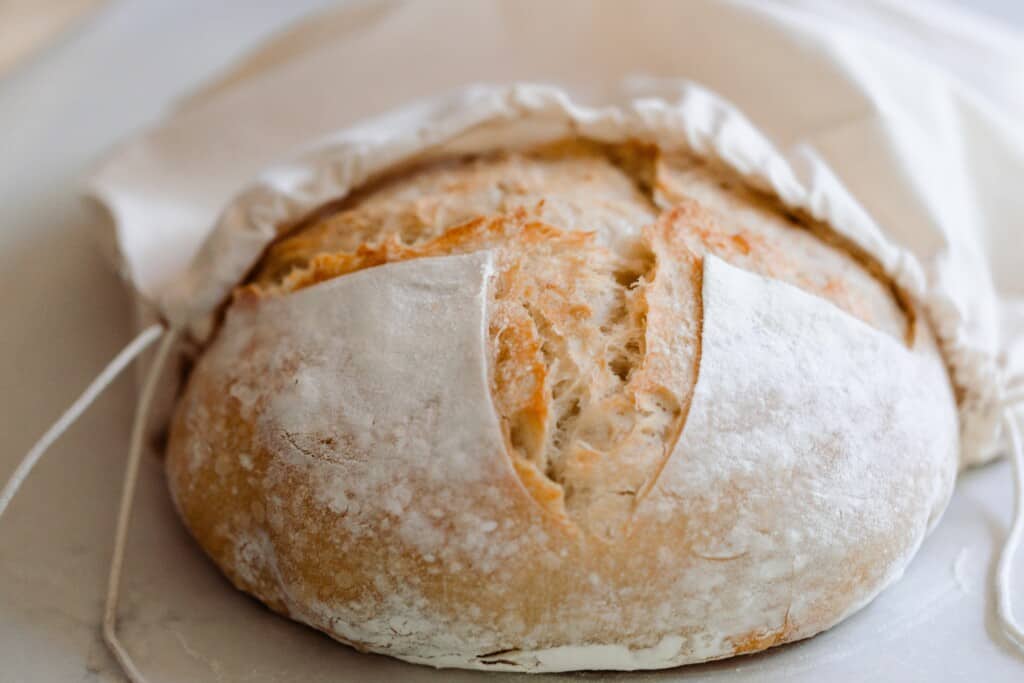
A 100% linen bag is great for a crusty loaf of sourdough bread. It’s not as ideal for your sandwich breads or sweeter breads.
Here are my favorite linen bags!
Pros: Thanks to a bit of air flow, this method helps your crust stay crisp and crumb stay nice and moist. It also looks beautiful and is reusable.
Cons: This is really only ideal for your crusty boules or loaves, not your sandwich loaves. Linen bags do not provide as much moisture, which is perfect for when you want your crust to stay crisp. However, if you have soft crusted bread, it will dry out faster in linen.
A similar option would be to use something as simple as a brown paper bag.
Plastic Bread bags
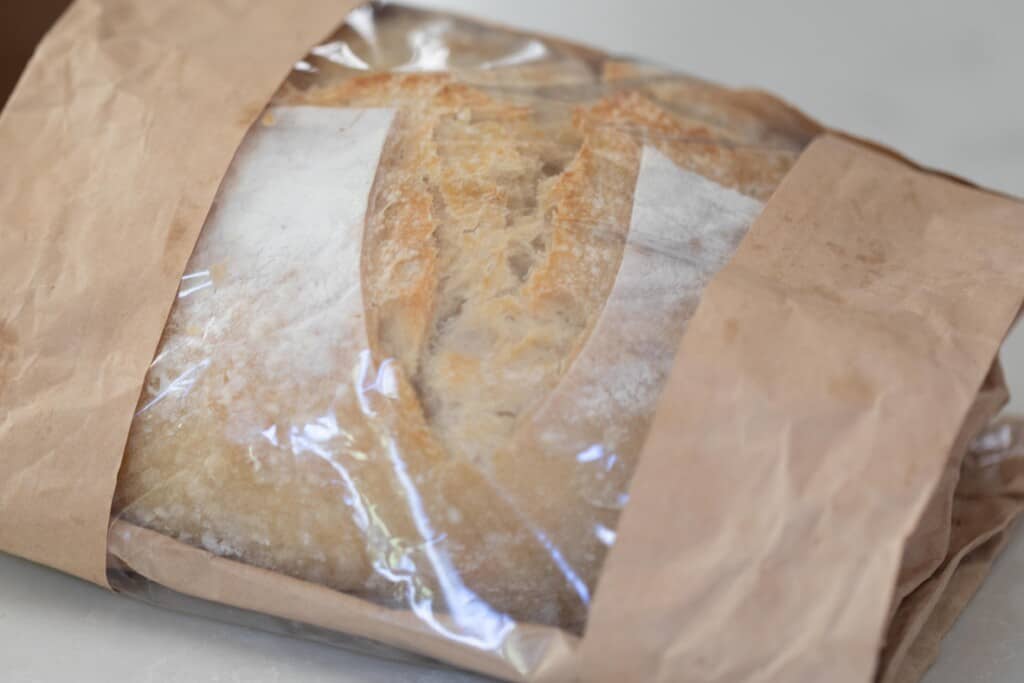
Plastic bag storage is better for sourdough breads that have a softer crust. This is because they do tend to let in and hold on to more moisture.
So, if you are wanting your sourdough boule to stay crusty, plastic may not be the best option.
Pros: Helps softer crusted sourdough breads like sandwich bread hold moisture in and not dry out as fast.
Cons: You’ll want your bread to cool completely before storing. Sometimes plastic can promote condensation if there is too much moisture in your bread.
Ziploc Bags
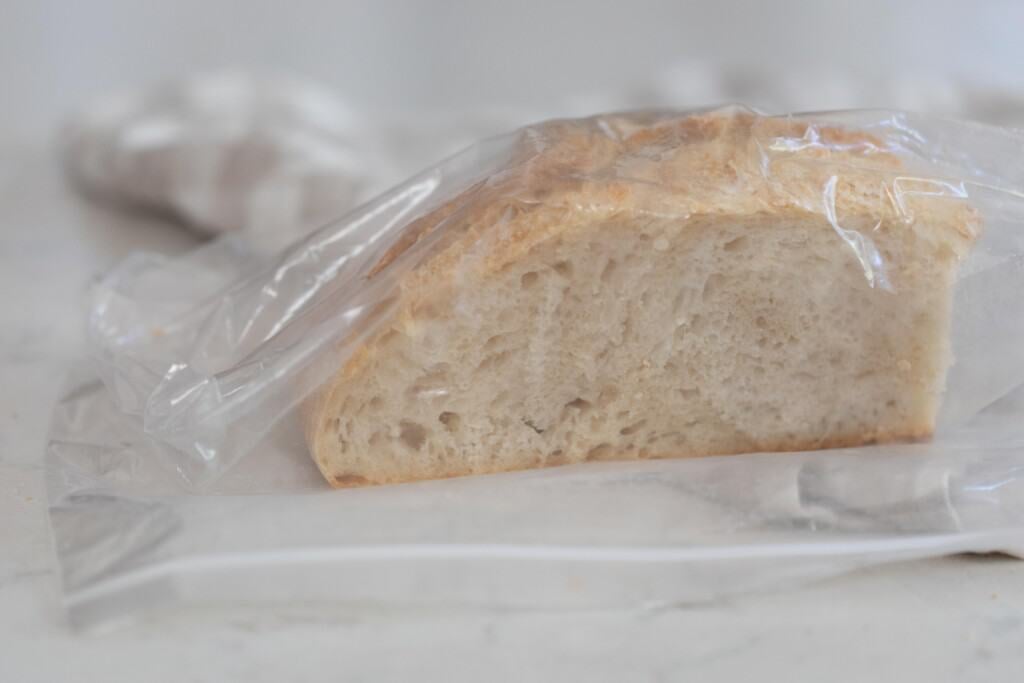
Similar to the plastic bread bags, Ziplocs are more ideal for your sandwich style loaves rather than crusty boules.
Pros: This is a simple way to store your bread and is easy to find and have on hand. It’s great when you are in a pinch.
Cons: Again, if you do not let your bread cool completely before placing it in a Ziploc bag, it could cause condensation. This moisture may make your bread soggy and mold faster.
Aluminum foil or plastic wrap
Something we all have in our kitchen pantry, you can also use aluminum foil or plastic wrap to keep your bread good for longer.
Pros: Plastic wrap and foil are great at covering your loaves thoroughly while still allowing air movement.
Cons: Not as environmentally friendly as the beeswax wrap alternative. These options are not reusable and can be considered wasteful.
Bread box
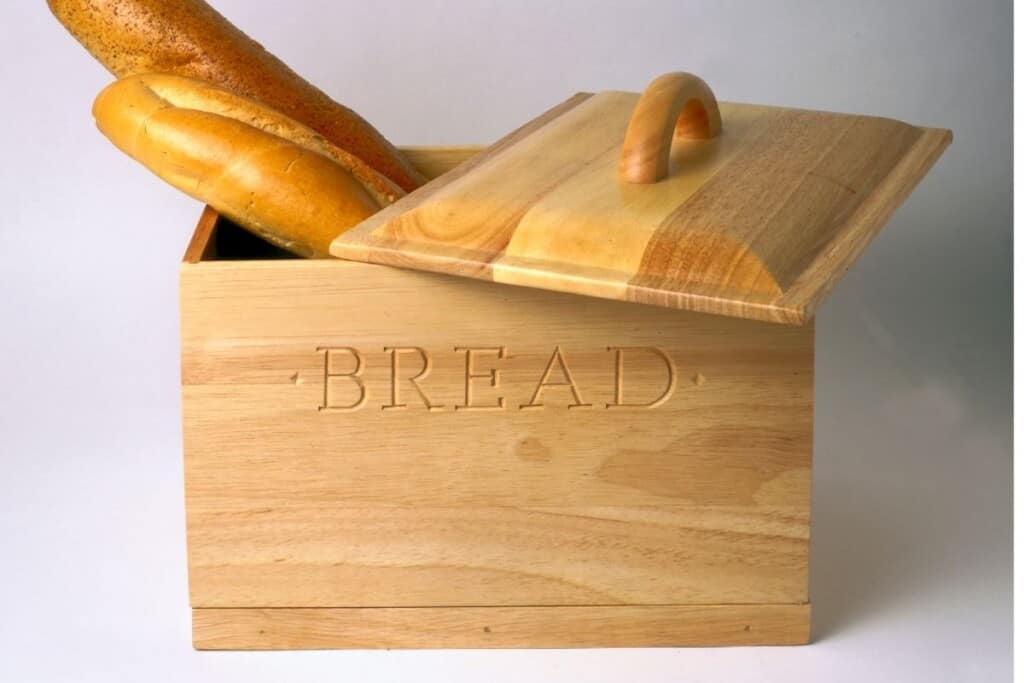
Bread boxes come in a variety of materials, including tin and wood. They can be a lovely addition to your kitchen counter.
If you are looking for a bread box, this one looks like a great option.
Pros: It’s reusable and convenient. Since it is not tightly wrapped, you’ll get more air movement for your bread.
Cons: If you have limited countertop space, this method is not ideal and can clutter things up. A bread box may not keep your loaves as protected, and therefore as fresh, as some of the alternative wrapping options.
A Bowl and Bowl Covers
I recently discovered these beautiful bowl covers to use for various food storage on Etsy. I love the look of them, and they can be great for storing your crusty boules.
You can buy the covers to fit bowls you already have. Plus, these make great gifts!
Check out another great set of bowl covers here.
Pros: You can get beautiful designs that make keeping your bread on the counter add to your overall kitchen aesthetic. This is also environmentally friendly, since it is reusable and not plastic.
Cons: As with your linen bags, this type of storage is more ideal for sourdough boules and not sandwich loaves.
FAQ
No! The humidity levels in a fridge are lower, creating a dry environment. This will dry out your bread much faster than if it is left out at room temperature.
Although your bread can stay good around 5-7 days, depending on how you store it, its best to eat your bread sooner for ultimate freshness. Storage and environmental conditions, such as humidity, play a big factor in how long your bread will last.
It’s all about moisture. Stale bread happens as moisture begins to leave the starches in the bread. This is why you want to store your bread in an airtight container, to avoid moisture being pulled out too quickly.
Moisture can also cause mold to occur, especially if you live somewhere with high humidity and warmer temperatures.
Mold is usually pretty easy to spot on your bread. Throw out your bread if you notice any signs of mold. How stale your bread gets before you decide it has gone bad is really more of personal preference.
Yes! You can freeze a whole loaf or bread slices. Learn the best way to freeze your sourdough bread and avoid freezer burn here.
If your bread does go stale, you can use it to make croutons for salads, breadcrumbs, and even French toast!





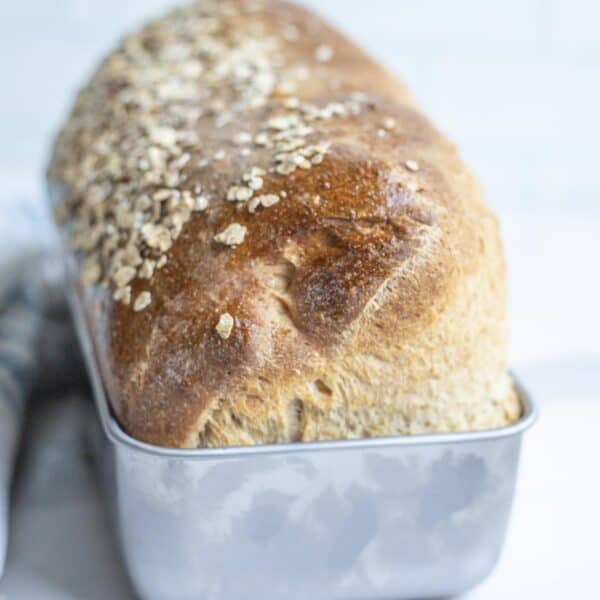
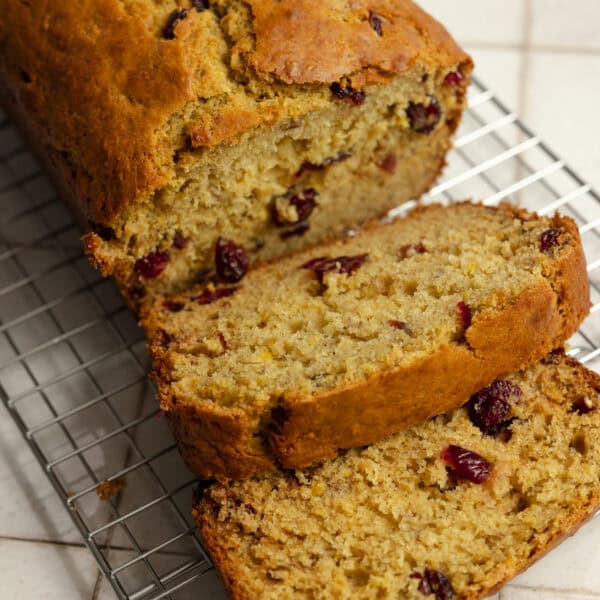
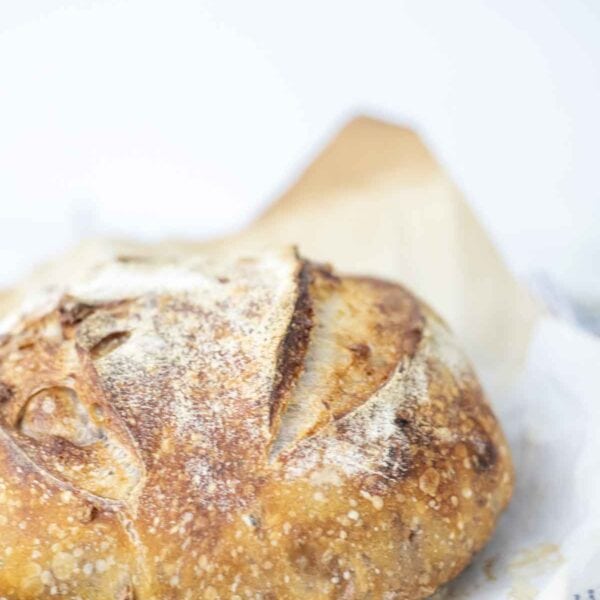
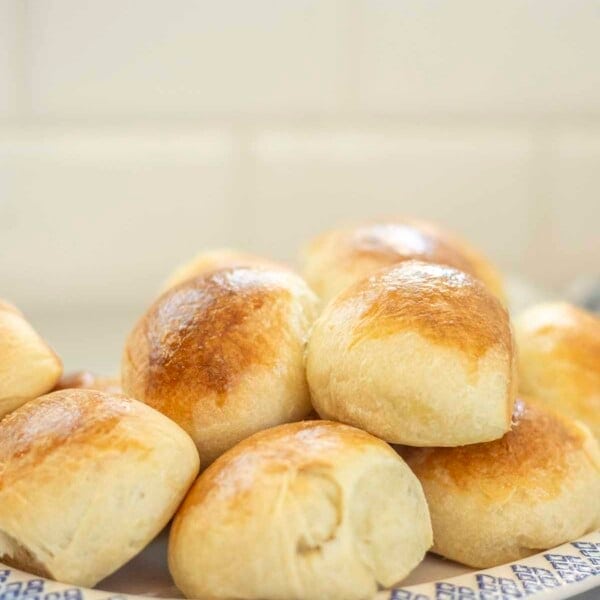






We store ours under an overturned mixing bowl, usually on the board we cut it on. Then we can slice off pieces throughout the day without much hassle! Or, we put it in a bowl but use a plate instead of a bowl cover. It still breathes but doesn’t seem to dry out as much as if we used fabric. It acts like a bread box, but can be put away or repurposed between loaves.
One day when packaging up my sandwich loaves, I discovered my ziplock box was empty. I used freezer paper and tape. It stays fresher longer than ziplock, and I use freezer paper exclusively now. I wrap with the waxed side towards the bread.
Great to know!
Hi Lisa! Thank you for this very helpful information! It answered the question I had perfectly. 🥰 I appreciate your site and your recipes and your guidance through them so much. Though it was a little difficult to navigate through the ads. I didn’t remember there being so many in the past. I recently switched search engines and was wondering if that was why I was seeing more ads? 🤔
I enjoy making a sourdough rosemary, cheddar cheese and sundries tomatoes artisan loaf. I also use 100 percent Freshly Milled grains. My question is does this to be refrigerated after it cools, because of the cheese in the loaf?
Once it is baked, it’s fine to keep on the counter for a few days.